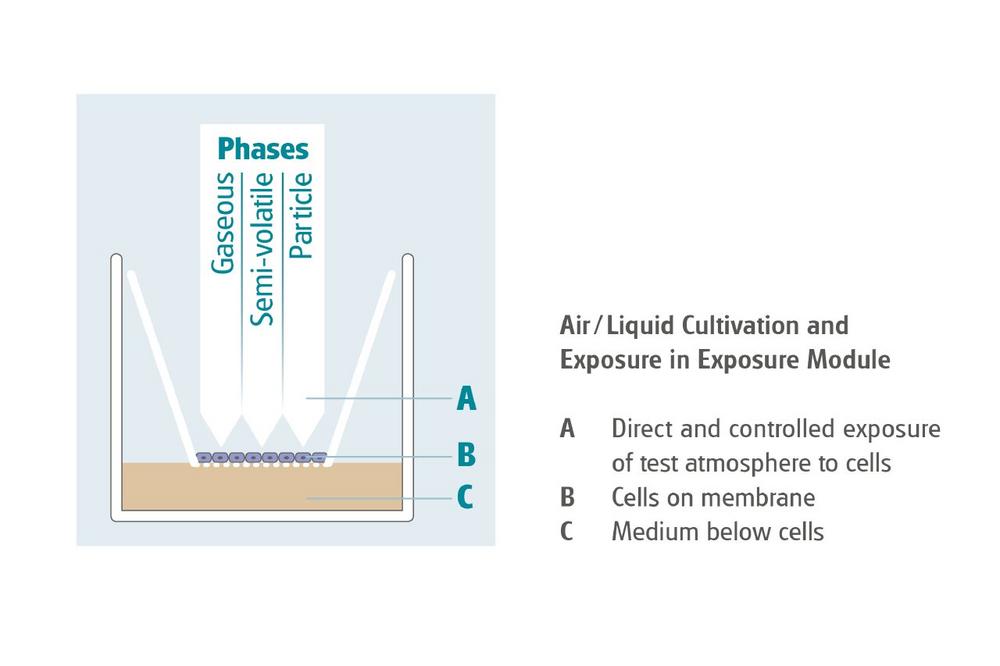In traditional in vitro testing cells are completely covered with cell culture media and it is common that drugs are dissolved in the cell culture media. This submerged exposure method represents an unphysiological drug application as the drug interacts with the cell culture media and thus the cells might receive a different dose and formulation than originally planned. Furthermore submerged lung epithelial cell cultures do not secrete protective lining fluids such as mucus or surfactant which weakens their predictive power for patients.
As a result, the submerged exposure method could lead to wrong conclusions.
The VITROCELL® Cloud System was developed for exposure under realistic and physiologically relevant conditions at the air/liquid interface. Here, epithelial cells are not covered with cell culture media, but exposed to air, which stimulates secretion of protective lining fluids mimicking conditions in the lung.
Under these air/liquid conditions in vitro drug testing can more realistically mimic inhalation therapy than standard drug testing under submerged conditions, since cells can be exposed directly to the drug formulation in aerosolized form and transport of the drug across the mucus/surfactant barrier and into the cell is accounted for under physiologic conditions.
The VITROCELL® Cloud System is specifically designed for efficient, dose-controlled and spatially uniform deposition of liquid aerosols on cells cultured at the air/liquid interface. A clinically relevant nebulizer is used and – similar to clincial settings – the aerosol is delivered within a short time of approx. 3–4 minutes.
The VITROCELL® Cloud System paves the way for screening of inhalable drugs under physiologically more relevant and hence potentially more predictive conditions than the currently used submerged cell culture systems.
Such predictive in vitro assays may expedite the time-consuming process of preclinical and clinical testing, which is an important aspect in our urgent hunt for developing safe and efficient drugs against COVID-19.
Photo 1: VITROCELL® Cloud 12 for exposure of aerosolized drugs to cell cultures at the air/liquid interface
Graph 2: Air/Liquid cultivation and exposure of cells from the respiratory tract
Graph 3: How the Cloud exposure system works
Advanced in vitro exposure systems
VITROCELL Systems GmbH
Fabrik Sonntag 3
79183 Waldkirch
Telefon: +49 (7681) 4977950
http://www.vitrocell.com
Managing Director
Telefon: +49 (7681) 4977950
Fax: +49 (7681) 4354
E-Mail: info@vitrocell.com
![]()
